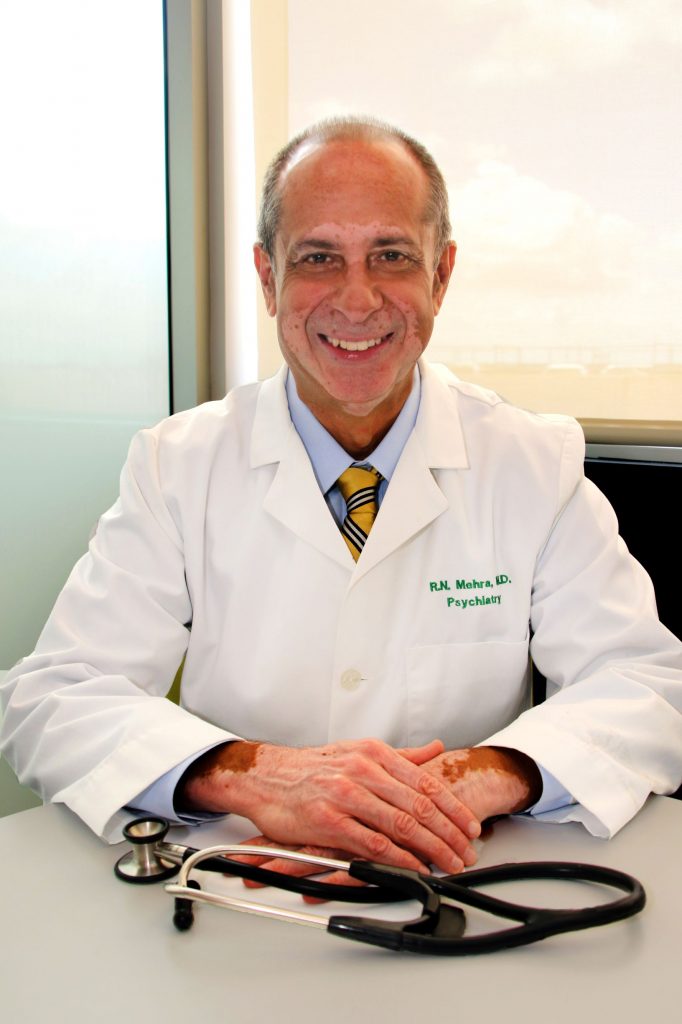Although stroke is a leading killer, experts say it demands more attention and funding.
On a Thursday night in mid-January, Dr. Rahul N. Mehra, a prominent Tampa psychiatrist, wasn’t feeling well and laid down on a couch in his south Tampa home. His wife Cathy was resting in the bedroom when she heard a loud thump and came out to investigate. She found her husband on the floor, disoriented.
“She looked at me and clearly realized that something wasn’t right,’’ Dr. Mehra said. “She asked me ‘who am I?’ and I wasn’t able to respond, so she immediately called the paramedics.’’

Dr. Rahul Mehra
Dr. Mehra is the CEO and Chief Physician Executive for the National Center for Performance Health (NCPH), a Tampa based health care company. NCPH creates and provides original and innovative resources intended to empower professional and amateur athletes of all ages. NCPH clients include large and small businesses, schools, colleges, universities and non-profit agencies. Dr. Mehra created a tool kit called Emotional Vaccines to address the effect of stress for individuals and families.
“Tampa General Hospital was just seven minutes away, so the paramedics got me there quick, and that saved my life.’’
But something else kept him motivated to live: “My spiritual belief pulled me through,’’ said the 60-year-old MD. “And my wife. If it wasn’t for her quick thinking, I might not be here today.’’

Dr. Rahul and Cathy Mehra
When the paramedics placed their patient into the ambulance, one of Dr. Mehra’s neighbors walked over to see what the commotion was about. She looked at him and held her hands together in prayer. In response, he gave her a thumbs up to say “I’m going to be ok.’’
And there was also COVID to consider: Both Dr. Mehra and Cathy had recently been vaccinated for COVID, but he still tested positive.
From there, it was up to a quickly assembled medical team at TGH to get Dr. Mehra back on his feet. Two days later, while in his hospital bed, Dr. Mehra suffered a second stroke.
Being a Saturday, some of the neurosurgery crew had to be called into work, led by Dr. W. Scott Burgin, Professor and Cerebrovascular Division Chief at the USF Health Morsani College of Medicine’s Department of Neurology and director of the Comprehensive Stroke Center at Tampa General Hospital.
“The nurse on shift found me unresponsive and alerted Dr. Burgin,’’ Dr. Mehra said.
The TGH team conducted a CAT scan and quickly identified the problem. “We converged on him within a matter of minutes, opened his artery back up and removed the clot in short order. Everyone worked as a finely tuned team,’’ Dr. Burgin said.
When news about Dr. Mehra’s failing health spread, three childhood friends flew to Tampa in a show of support. Each packed black clothing, “because they thought they were coming to a wake.’’
Rumors of Dr. Mehra’s passing were exaggerated and of course there was no funeral. In fact, he viewed what happened as a celebration of a renewed life.
“My recovery has been without any physical, sensory, or speech deficits,’’ he said. “The unparalleled recovery is the focus of the world-class care I received. Recall that three days after being found unconscious, paralyzed, blind and unable to speak in my hospital bed, I walked out of Tampa General’s Neuro ICU for discharge – not in a wheelchair but walking on my own strength.’’
Because a stroke cuts off blood and oxygen to the brain, it must be treated as an emergency. However, treatment is no easy task, Dr. Burgin said: A micro-catheter is inserted into the lower body and run upward to find the blockage in what may be a narrow blood vessel. “It’s like pushing a piece of string through the leg and up into the head.’’
More than 800,000 people a year in the United States suffer a stroke: enough to fill Tampa’s Raymond James Stadium 12 times over. Many of these people don’t know what hit them, and like Mehra, are in good health. This makes strokes difficult to predict and prevent. If not addressed quickly, a stroke can lead to brain hypoxia, permanent disability or death.
Stroke is among the top 10 leading causes of death in the United States:
- Heart disease
- Cancer
- Unintentional injuries
- Chronic lower respiratory disease
- Stroke and cerebrovascular diseases
- Alzheimer’s disease
- Diabetes
- Influenza and pneumonia
More on strokes: https://www.nhlbi.nih.gov/health/stroke
“Stroke is an incredibly under-resourced segment in medicine, even though it’s the No. 1 cause of disability and the No. 5 cause of death in the United States,’’ Dr. Burgin added. “We have heart centers everywhere, but not stroke centers.’’
For more about strokes and vascular neurology at USF, visit: https://health.usf.edu/care/neurology/services-specialties/stroke-vascularneurology
Story by Kurt Loft
